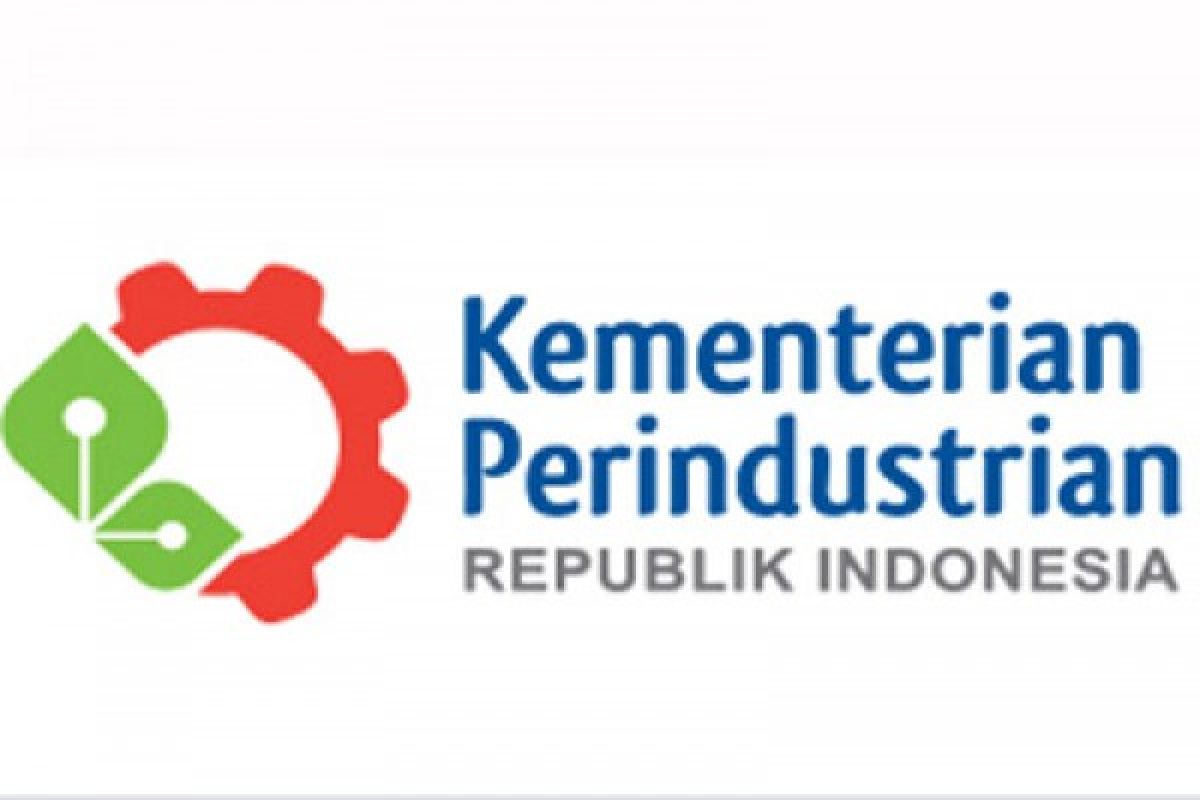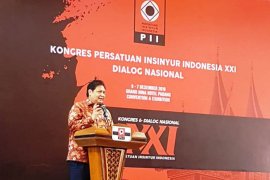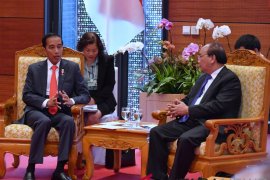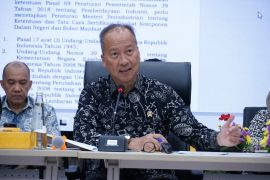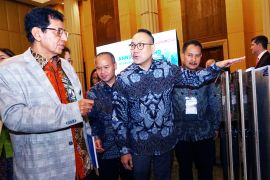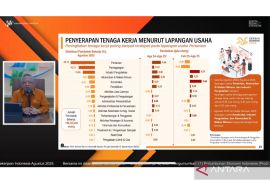"Technological developments are bound to take place. Countries that implement Industry 4.0 believe in the importance of holistic government policy support as a driving force for the successful implementation of digital economic policies," Expert Staff to the Industry Minister for Business and Investment Climate Andi Rizaldi noted in a written statement here Monday.
According to Rizaldi, Indonesia needs to make the most of the era of the industrial revolution 4.0 on account of the fact that it has demand advantages, a strong institutional framework, and sound global trade and investment.
Rizaldi remarked that the government had established the Making Indonesia 4.0 initiative as an integrated roadmap to implement several strategies, with huge aspirations of Indonesia ranking among the top 10 economies in the world by 2030.
The resilience of the Indonesian economy, which is quite good, is also considered as one of the potentials that can be optimized through the implementation of Industry 4.0. This resilience is demonstrated by higher growth in 2019 and smaller contraction in 2020 as compared to that in peer countries.
The other potential is to generate new job opportunities that are more specific to accommodate a large number of workers.
The Industrial revolution 4.0 will not eliminate job opportunities but rather offer new types of jobs that allow migration from one profession to another.
"In future, there will be a shift in one's profession to a better one, which will elevate the dignity of the workers themselves," according to Rizaldi.
In Making Indonesia 4.0, the Industry Ministry has determined seven priority sectors, comprising food and beverage, automotive, chemical, textile and textile products, electronics, and medical devices. These seven sectors were selected since they can contribute 70 percent of the total gross domestic product (GDP) of manufacturing, 65 percent of manufacturing exports, and 60 percent of industrial workers.
The proportion of workers in the seven priority sectors in the last five years had shown an increasing trend, wherein the figure increased 5.02 percent in 2015 and rose 5.70 percent in 2020.
"Based on the increase in data, it gives hope that the adoption of technology in the seven priority sectors has the potential to increase national economic capability," he stated.
Related news: Research Agency encourages stronger cooperation among ASEAN nations
Rizaldi remarked that Indonesia is a country having the largest number of workers, with the population totalling 125 million, after China, India, and the United States.
"If this is driven by improving the quality of the workforce, then this will have a positive impact on increasing the productivity of the manufacturing sector and will continue to make a good contribution to national economic growth," he stated.
Hence, the Industry Ministry continues to encourage the development of human resources in the industrial sector through main programs, including competency-based vocational education, development of education and training units in industrial growth centers, as well as link and match programs between the education and industry sectors.
"In an effort to accelerate the development of human resources for Industry 4.0, the Industry Ministry has conducted training, technical guidance, and certification for 2,171 people," Rizaldi noted.
Another effort is to encourage increased employment in the era of the industrial revolution 4.0 by involving Small and Medium Industries (SMEs), for instance, with e-commerce training for 13,183 SMEs in 2021 and holding an e-smart SMEs webinar that supports digital marketing of SMEs.
Related news: Demographic bonus, industrial revolution become manpower challenges
Translator: Katriana
Editor: Rahmad Nasution
Copyright © ANTARA 2022
